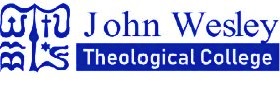"Lack, need and tasks" of an ecumenical and transdisciplinary ecotheology
DOI:
https://doi.org/10.59531/ots.2023.1.2.91-125Keywords:
divinity, science, methodology, sustainability, ecologyAbstract
Starting from Tillich's approach about the church's mission, we identified the needs of the church which it can rightly expect to be met by ecotheology as a science. Looking at the crisis phenomena of the science of theology and ecology, which have a different appearance, but have similar roots, we found that, developing separately and independently, they can no longer fully satisfy the identified needs of the church in our time. We had to ask the question, what kind of ecotheology can be suitable for the reflection of humanity's global ecological crisis and sustainability aspirations? Knowing the possibilities of interpretation of existence, the search for the function of the alienated person and the experience of faith (in accordance with Tillich), we examine the possibilities and frameworks of an apologetic and kerygmatic ecotheology, and after clarifying methodological issues, we outline the possibilities of an ecumenical and transdisciplinary approach, with particular attention to the viewpoint of systematic theology and dogmatics.
References
Béres T. (2018): A hálás élet művészete: Bevezetés az ökoteológiába - L Harmattan Könyvkiadó Kft., Budapest, pp. 112.
Berry, T. (2009): The Sacred Universe: Earth, Spirituality, and Religion in the Twenty-First Century. Edited by Mary Evelyn Tucker. - Columbia University Press, New York
Bolyki, J. (1999): Teremtésvédelem – Ökológiai krízisünk teológiai megközelítése. – MRE Kálvin János Kiadó, Budapest.
Dawkins, R. (2009): Isteni téveszme. – Nyitott Könyvműhely, Budapest
Előd, I. (1978): Katolikus dogmatika. – Szent István Társulat, Budapest.
Francis, Pope. (2015): Encyclical Letter, Laudato Si': On Care For Our Common Home. - Libreria Editrice Vaticana, Vatican City.
Herce, R. (2016): Care for creation. Studies on the encyclical Laudato Si’ – Scripta Theologica 48:3 827-828. https://doi.org/10.15581/006.48.8111
Hufnagel, L. (ed., 2023a): Ecotheology: Sustainability and Religions of the World – IntechOpen, London. https://doi.org/10.5772/intechopen.100196
Hufnagel, L. (2023b): Fenntartható társadalom keresztény szemmel. 10. rész: Fenntartható társadalom és teológusképzés – Élet és Világosság 35(6): 60-64.
Ikechukwu, Kanu (2023): The ecological value of Igbo Spirituality - Harvard Divinity Bulletin, Spring/Summer 2023.
Ituma, E.A. (2013): Christocentric Ecotheology and Climate Change. – Open Journal of Philosophy 3(1a):126-130. https://doi.org/10.4236/ojpp.2013.31A021
Juhász Nagy P. (1986): Egy operatív ökológia hiánya, szükséglete és feladatai. –Akadémiai Kiadó, Budapest.
Lovelock, J.E.; Margulis, L. (1974): Atmospheric homeostasis by and for the biosphere: the Gaia hypothesis - Tellus A. 26 (1–2): 2–10.
Mics, F. ; Hufnagel, L. (2023): Ökoteológia a „Web of Science” által referált tudományos publikációk tükrében - Opuscula Theologica et Scientifica 1(1): 1-27
Moltmann, J. (1985): God in creation : an ecological doctrine of creation : the Gifford lectures 1 9 8 4 - 1 9 8 5 . - SCM Press Ltd, London
Jenkins, Willis J. (2017): Whose religion? Which ecology? In: Willis Jenkins, Mary Evelyn Tucker and John Grim (ed) Routledge Handbook of Religion and Ecology, Routledge, London and New York. ISBN: 978-1-138-78957-9
Primavesi, A. (2001): Sacred Gaia, Holistic Theology and Earth System Science - Routledge, London
Rahner, K. (1994): Isten: Rejtelem. Öt tanulmány. – Egyházfórum, Budapest.
Teilhard de Chardin, P (1955): Le phénomène humain - Éditions du Seuil, Paris
Tillich, P. (2002): Rendszeres Teológia. – Oziris Kiadó, Budapest.
Tonhaizer, T. (2014a): A teremtésvédelem alapelvei az ókori Izraelben. – Adventista Szemle 10(1): 21-29.
Tonhaizer, T. (2014b): Földünk fenntarthatósága a 21. századi ökumené szemszögéből. – Adventista Szemle 10(2): 9-19.
Zlinszky, J. (2016): Környezet- és teremtésvédelem. – Vigilia 8(5): 329-342.
Downloads
Published
How to Cite
Issue
Section
License

This work is licensed under a Creative Commons Attribution-NonCommercial-NoDerivatives 4.0 International License.
OTS articles are subject to the Creative Commons Attribution-NonCommercial-NoDerivates 4.0 International Licenses Copyright Terms.





